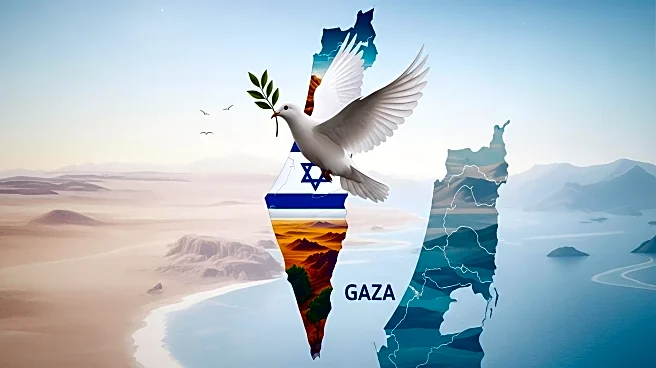What is the story about?
What's Happening?
In a special podcast episode, Haaretz columnist Amir Tibon analyzes President Trump's 20-point peace plan for Israel and Gaza. The plan, unveiled at a White House press conference, aims to end the Gaza conflict through a ceasefire, disarmament of Hamas, and a transitional government in Gaza. While Israeli Prime Minister Benjamin Netanyahu has endorsed the plan, its implementation faces challenges, particularly from the hard-right wing of his coalition.
Why It's Important?
The peace plan represents a significant diplomatic effort to resolve the Gaza conflict and improve regional stability. Its success could lead to broader peace in the Middle East and expand the Abraham Accords. However, the plan's implementation faces political challenges, including opposition from Netanyahu's coalition and the need for Hamas to disarm. The international community's support and involvement will be crucial in facilitating the plan's success.
What's Next?
The next steps involve diplomatic efforts to persuade Hamas to accept the terms of the peace plan and address political challenges within Israel. The international community, including Arab states, will need to play a supportive role in ensuring compliance and providing resources for Gaza's reconstruction. Monitoring and enforcement mechanisms will be essential to prevent setbacks.
Beyond the Headlines
The peace plan raises questions about the future governance of Gaza and the role of international bodies in conflict resolution. It highlights the complexities of achieving peace in a region with deep-seated political and historical tensions.
















